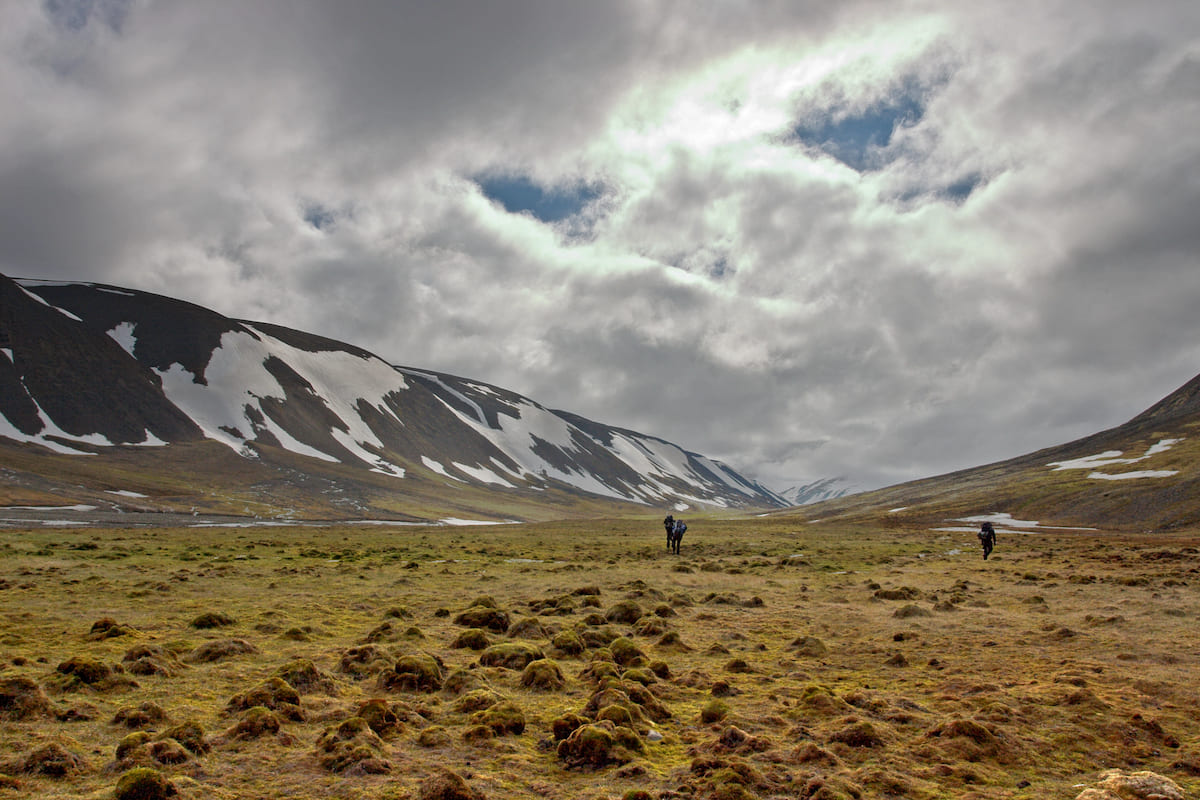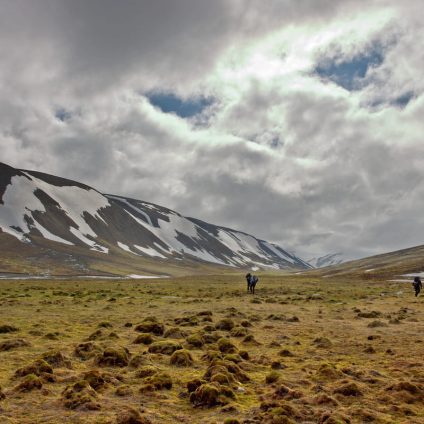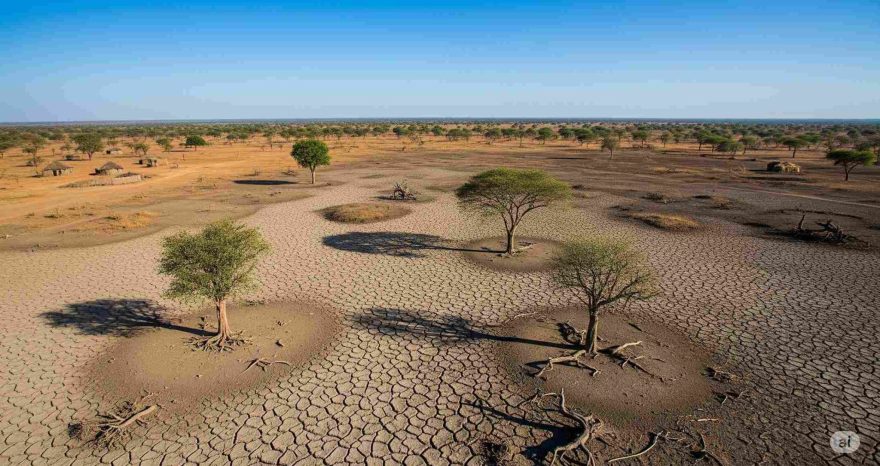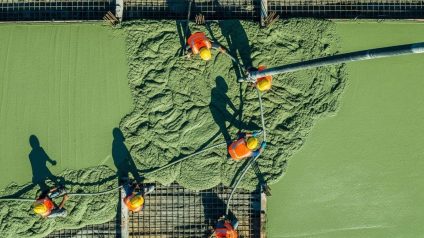Unprecedented winter temperatures and vanishing snow are reshaping the Arctic landscape and endangering ecosystems in the Svalbard archipelago.

Snow is vanishing in the Arctic
Snow is missing in the Arctic, even in the heart of winter. During a field research campaign in the Svalbard archipelago of Norway, conducted in February 2025, a group of scientists encountered exceptionally high temperatures, widespread snowmelt, and thriving vegetation. Their work revealed a troubling and dramatic transformation underway in the Arctic.
“Standing in puddles at the base of a glacier or in the middle of bare, green tundra was a shocking and surreal experience,” said Dr. Bradley of Queen Mary University of London, lead author of the study. “The thick snow cover that blanketed the landscape disappeared in a matter of days. The gear in my backpack felt like a relic from a past climate.”
The Svalbard islands are warming six to seven times faster than the global average, with winter temperatures rising at nearly twice the annual global rate. The results of this study, published in Nature Communications, emphasize that Arctic winter warming is no longer an anomaly but a recurring feature of a deeply altered climate system.
The research team, equipped for freezing conditions, found themselves working bare-handed. “Our mission was to study fresh snow,” explained co-author Laura Molares Moncayo. “Yet over two weeks, we collected fresh snow only once, as most of the precipitation fell as rain. The absence of snowfall in mid-winter undermines our ability to establish a representative baseline for freeze-season processes.”
The climate crisis is accelerating
The researchers’ firsthand experience confirms long-standing projections about the rapid warming of the Arctic, while also highlighting the alarming pace of change. Surpassing the 0°C melting threshold has profound consequences for the physical environment, local ecosystems, and the very methodology of Arctic winter research.
Warmer winter temperatures can disrupt microbial carbon cycles and threaten wildlife survival. This shift may also trigger a vicious cycle by accelerating permafrost melt, biodegradation, and the release of greenhouse gases throughout the region.
According to the scientists, a shift from reactive to preventive strategies is urgently needed, recognizing winter as a critical and vulnerable season. “Climate policies must account for the fact that the Arctic is changing much faster than expected. Winter is at the heart of this shift,” Bradley stressed.
New safety risks are emerging
Unexpected conditions encountered during the fieldwork, such as thin, muddy snow, prevented snowmobiles from reaching study sites and forced the researchers to question whether traditional scientific operations in the region remain feasible.
Safety concerns have also surfaced. The lack of snow in the Arctic hampers rescue operations by limiting vehicle mobility, making it difficult for researchers to retreat quickly in case of polar bear encounters.













